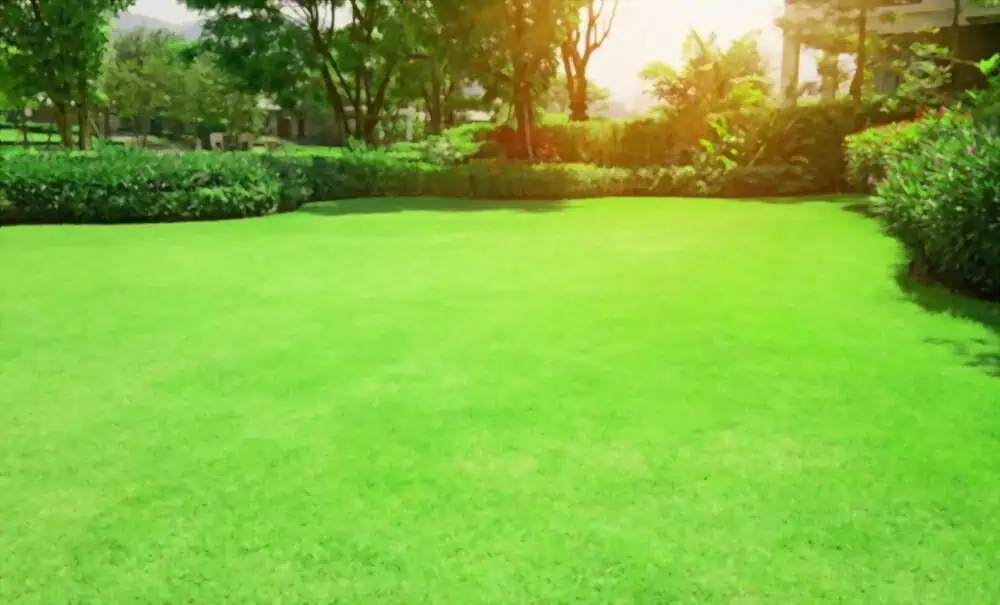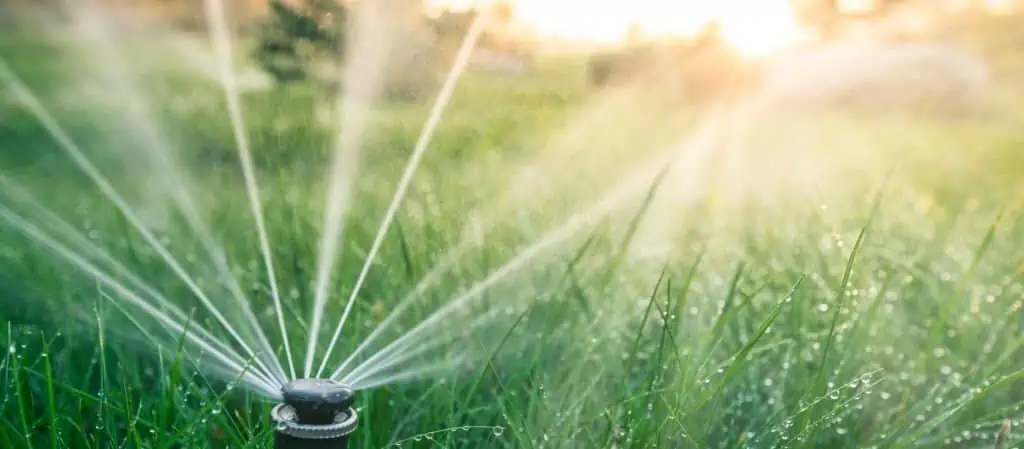Bermuda is that all-famous grass you can find in all states in the United States, except for the Northern most states, which are primarily cold. It is an excellent drought-resistant grass. However, watering it with too much or too little can make it prone to disease and pests. You also have to water the grass at the best times.
Generally, Bermuda requires about half an inch to three-quarters inch of water every one to three weeks. As summer goes on, the grass will need between 1 to 1.25 inches of water weekly to survive. If the soil is sandy, get set to provide 0.5 inches of water as often as every three days.
The watering of the Bermuda grass largely depends on the season, and this article provides all the information you need to keep it going.
Bermuda Grass: How Much Water Does it Need?
Despite all the talk about Bermuda grass being tough and drought-resistant, it will turn brown if you don’t give it adequate water. Depending on the season, the grass needs some amount of water. For example, Bermuda grass needs about 0.5-0.75 inches per week of water during spring.
In the summer, 1-1.25 inches every seven days will keep the grass green and fresh, while around the fall, 1 inch of water monthly will do. The winter is similar, with 1 inch of water per month being enough for the grass. When rainfall leaves you hanging or is out of season, maintain a regular irrigation schedule for your Bermuda grass.
Overall, Bermuda grass requires about an inch of water every week.

How Often Should You Water Bermuda Grass?
You should deep-water your Bermuda grass with one inch of water only once weekly. As you keep this up, you’ll notice that the roots grow deeper, providing an added advantage for saving water during summer.
The infrequent but deep watering boosts the grass, letting it dive deeper into the soil profile and getting a regular supply of much-needed resources like nutrients and increased moisture. However, experts recommend adjusting your watering schedule based on how much rainfall your area gets.
Irrigating your grass that week is unnecessary if you’ve had days of heavy rain. Conversely, dryer periods demand that you stick to 1 inch of water weekly.
The Best Time to Water Bermuda Grass
The best time to water Bermuda is early in the day or between early morning and mid-morning. This time allows the water in the grass blades to dry before sunset.
It’s best not to water at night due to low temperatures at this time, which leaves moisture on the grass blades for too long. You wouldn’t want to take this risk since moisture makes the grass more prone to turf disease.
It’s easy to know when your Bermuda grass needs watering. Still, you must pay attention, especially if you don’t have access to enough water. Some signs to watch out for include the following:
- Wilting leaves
- The leaf blades have begun to turn dark-bluish to gray color
- Extended hot weather conditions

Is Overwatering a Possibility?
Yes, especially when gardeners and homeowners do not appreciate what the Bermuda grass can handle. Overwatering it will clog its root area, keeping the lawn too moist for prolonged periods. When that happens, problems with root development pop up.
Further, an overwatered lawn promotes fungal diseases and attacks from pests. When you sight shallow roots and a buildup of excessive thatch, those are signs your lawn is overwatered.
Soil compaction is another problem when you overwater. Compact soil will reduce the oxygen supply to the root zone, making the roots die out. However, you can solve this problem by combining dethatching with core aeration.
Watering Bermuda Grass in Seasons

Different seasons call for different watering levels, so you must get it right to have the lawn you envision for your yard.
Spring Season
In springtime, Bermuda grass does not need much watering or irrigation, but newly sodded grass may require more water to grow and spread faster. Accordingly, the spring water requirement is between 0.5 to 0.75 inches, while once per 7 days is okay for the frequency.
Bermuda grass requires 0.5-0.75 inches of water every seven days in March, April, and May. That means it doesn’t need too much water at this time of the year. However, you can increase the amount of water to one inch weekly if the grass blades are curling and yellowing.
Summer Season
June, July, and August summer months should see your Bermuda lawn receive at least 1 inch of water every seven days. During this season, the temperatures rise, and drought stress is more likely to affect your Bermuda turf. You can use a regular summer irrigation schedule to prevent this scenario.
Note that the amount of water needed and the summer irrigation frequency can be adjusted to match your region’s soil type and environmental conditions.
Fall Season
The fall season occurs in September, October, and November. Continue irrigating your Bermuda grass to prevent drought stress. If Bermuda dormancy sets in early in late fall, reduce the watering frequency.
In addition, the fall is when the Bermuda turf growth stops, so you still need to water the lawn, but not as frequently. This way, you prevent dehydration.
Winter Season
Winter is usually a tough month. Thankfully, the Bermuda grass lies dormant by this time. However, it’s still prone to drought. To prevent drought from harming the grass, you must water your lawn at least once every three weeks.
Bermuda grass is water-efficient, and in the winter, the lawns become dormant, needing no supplemental watering.
Conclusion
Keeping your Bermuda grass green, healthy, and thriving involves a few different means of care. These can include fertilization, treatments for weeds, steady mowing, aeration, and the often-overlooked watering. Watering your Bermuda grass haphazardly can have ill effects, such as compact soil and shallow roots, which become prone to diseases and pets.
Adopting the best times to water your Bermuda grass and the adequate amount it needs is essential. The best time you can water it is very early in the day. During the summer, the weather is hot, so Bermuda typically doesn’t need much water at this time. Other seasons may dictate otherwise, such as winter when the grass goes dormant.
Now that you know this, you can keep your Bermuda grass fresh from drying out or changing colors. When it rains steadily, you can resume watering after a few days. Always ensure you stay moderate with watering; there’s no need to soak your lawn.






